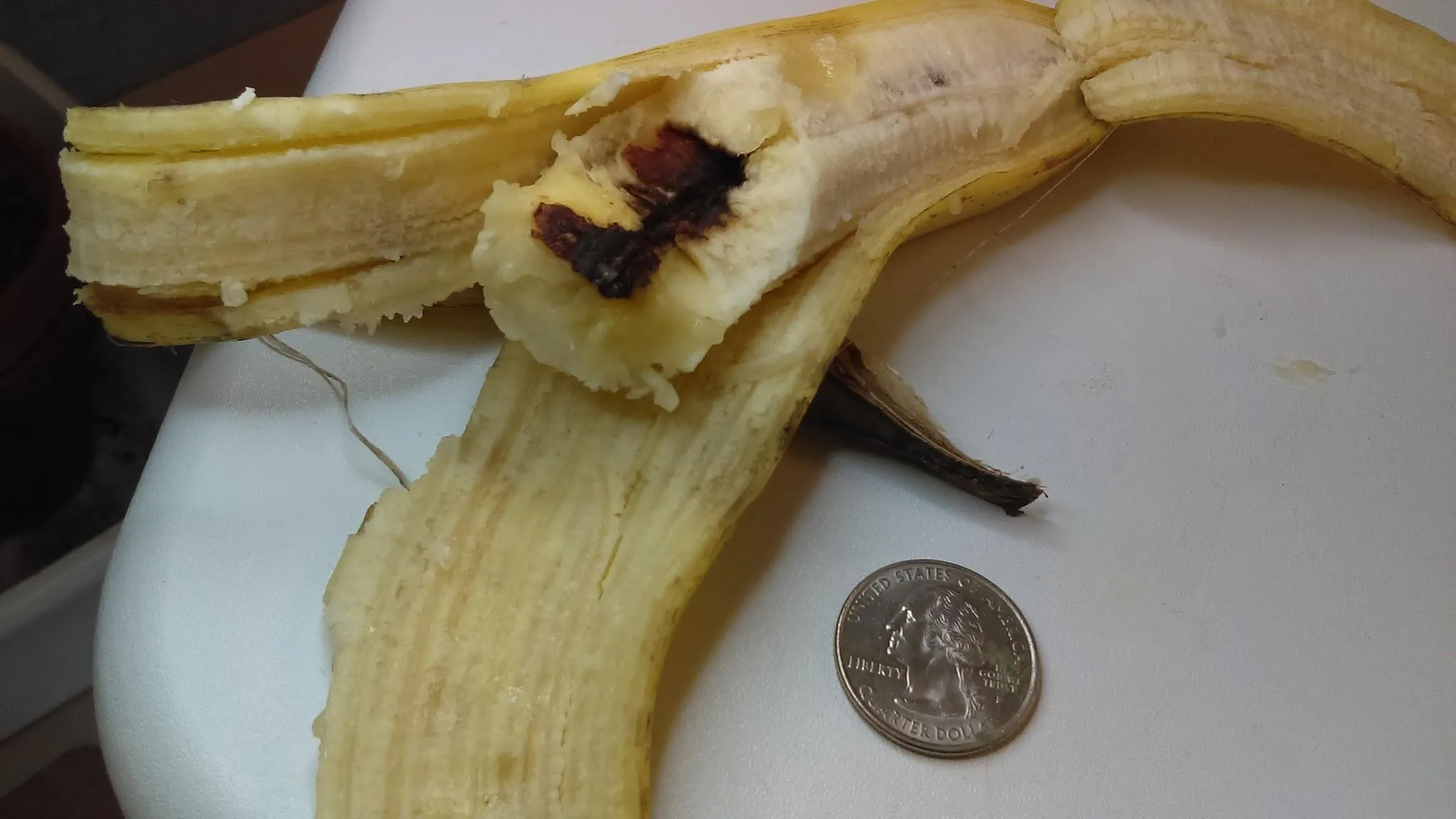Have you ever wondered why your banana is so soft and when it is best to consume it? Look no further as we explore the possible causes of bananas becoming soft, why ripeness matters, and helpful tips for preserving their texture. Plus, did you know that soft bananas may have some surprising health benefits? Read on to learn all about this deliciously intriguing fruit.
What causes bananas to become soft?
Bananas are a popular fruit beloved by many, but have you ever wondered why they become soft and mushy over time? The answer lies in the ripening process.
Bananas naturally produce a gas called ethylene, which triggers the ripening process. As bananas ripen, they begin to break down complex starches into simple sugars, resulting in a sweeter taste and softer texture. This process is accelerated when bananas are exposed to higher temperatures or stored with other ripe fruits that also produce ethylene gas.

However, once a banana reaches peak ripeness, it will eventually start to deteriorate and become too soft to enjoy. This is due to enzymes breaking down cell walls and causing the fruit to lose its structural integrity.
To slow down this process and extend the life of your bananas, try storing them in a cool place away from other ripe fruits. You can also delay the ripening process by placing unripe bananas in a paper bag with an apple or tomato – both of which also give off ethylene gas – until they are ready for consumption.
Now that you understand why bananas become soft, you can make more informed decisions about how to store and consume them for maximum enjoyment.
The importance of ripeness in bananas is paramount.
Ripeness is a crucial factor to consider when it comes to selecting and consuming bananas. Bananas are one of the most widely consumed fruits in the world, and their ripeness has a significant impact on their taste, texture, and nutritional value.
Unripe bananas are known for their starchy texture and lack of sweetness. They also contain high levels of resistant starch, which can be difficult for some people to digest. As bananas ripen, they become softer and sweeter due to the breakdown of starches into sugars. This process also increases their antioxidant levels, making them more nutritious.
Overripe bananas may not look as appealing as those that are fresh off the tree but they are perfect for baking or using in smoothies because they are sweeter than ripe ones.
Selecting the right level of ripeness is important if you want to get the most out of your banana consumption experience. For example, if you’re looking for a quick snack on-the-go or need them for smoothies or baking recipes then choose ripe bananas with brown spots which will be sweet enough without being too mushy.
In conclusion, understanding banana ripeness is essential when it comes to choosing this popular fruit as part of your diet. With its range from unripe green through golden yellow all way up until brown spots appear; there’s something suitable for everyone’s palate!
How can I properly store bananas to prevent them from becoming soft?
Bananas are a beloved fruit enjoyed by many around the world. However, improper storage can lead to the unfortunate softening of these tasty treats. Fear not, for there are several tips and tricks that can help prevent this from happening.
First and foremost, it is important to store bananas in a cool and dry place away from direct sunlight. This will slow down the ripening process and keep them fresher for longer. Additionally, it is best to keep bananas separated from other fruits as they release ethylene gas which can accelerate ripening.

For those who prefer their bananas on the greener side, storing them in a paper bag with an apple or tomato can help trap ethylene gas and slow down ripening even further. On the other hand, if you prefer your bananas ripe and ready to eat, consider storing them in the refrigerator once they have reached your desired level of ripeness.
It is also worth noting that while some may think hanging bananas on a hook or hanger is aesthetically pleasing, it can actually lead to bruising and soft spots due to gravity pulling on the fruit.
By following these simple guidelines for proper banana storage, you can ensure that your beloved yellow fruits remain firm and delicious for days to come.
The potential health benefits of consuming soft-bananas.
Soft bananas may not be the most appealing to the eye, but they hold a wealth of potential health benefits for those who consume them. While many people prefer their bananas firm and ripe, softer bananas are actually richer in nutrients and easier for the body to digest.
One of the key benefits of consuming soft bananas is their high levels of antioxidants. These powerful compounds work to fight off harmful free radicals in the body, reducing inflammation and protecting against chronic diseases like cancer and heart disease.
In addition to antioxidants, soft bananas are also rich in fiber. This important nutrient helps regulate digestion and promotes feelings of fullness, making it an excellent choice for those looking to maintain a healthy weight or improve gut health.

« Elevate Your Banana Bread Game with These Delicious Spreads: A Comprehensive Guide
The Pros and Cons of Eating Bananas: A Comprehensive Guide »
Perhaps most surprisingly, soft bananas may also have mood-boosting properties. They contain high levels of tryptophan, an amino acid that helps produce serotonin – a neurotransmitter linked with happiness and well-being.
While some may shy away from soft bananas due to their appearance or texture, it’s clear that they hold immense potential as a nutritious and beneficial food source. So next time you’re at the grocery store, don’t be afraid to reach for those slightly bruised or mushy bunches – your body (and taste buds) will thank you!
Check out our other articles to find out even more about banana.
Understanding the causes of soft bananas, as well as how to store them properly can help you make sure that your banana remains in optimal condition for consumption. Eating a ripe banana can provide numerous health benefits and makes it even more enjoyable to snack on! If you’re interested in learning more about why bananas become soft or other related topics, be sure to check out our other articles – there’s so much more to learn about this delicious fruit!














